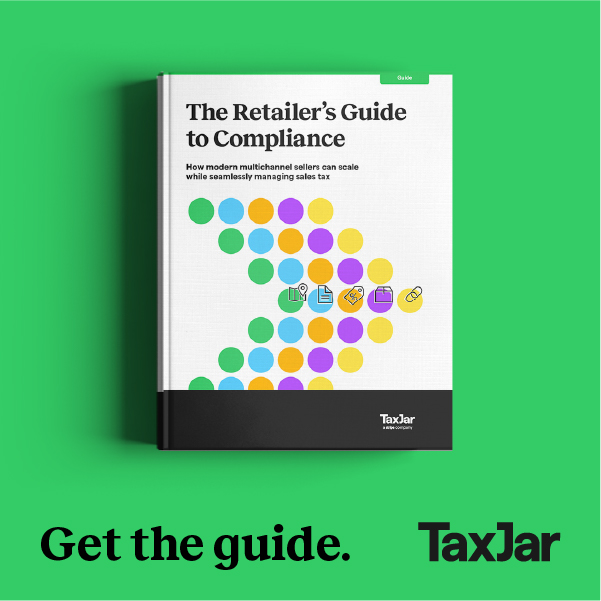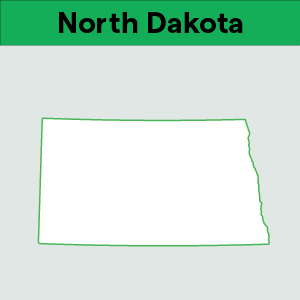Kentucky’s marketplace facilitator sales tax law, explained
by October 16, 2024
The state of Kentucky requires marketplaces to collect sales tax on behalf of sellers on online marketplaces like Walmart and eBay.
This means that if you sell on a platform like Amazon, then Amazon will collect sales tax from your Kentucky buyers on your behalf, and remit it to the state.
But as usual, there are always a few wrinkles here when it comes to e-commerce sales tax.
This post will explain what online sellers need to know about the Kentucky marketplace facilitator law, and answer your frequently asked questions.
Overview of the Kentucky marketplace facilitator law
Kentucky’s marketplace facilitator law states that marketplace providers (previously defined as marketplace facilitators) in Kentucky must collect and remit sales tax on behalf of their marketplace sellers in the immediately preceding or current calendar year, if the marketplace provider:
- Makes $100,000 in retail sales on its own behalf or in facilitated retail sales of tangible personal property, digital property, or services that are delivered or transferred electronically to a Kentucky purchaser; or
- Makes 200 or more separate retail sales transactions on its own behalf or in facilitated sales.
Quick facts about the Kentucky marketplace facilitator law
- Effective date: July 1, 2019
- Threshold: Marketplace providers (previously defined as marketplace facilitators) in Kentucky must collect and remit sales tax on behalf of their marketplace sellers in the immediately preceding or current calendar year, if the marketplace provider:
- Makes $100,000 in retail sales on its own behalf or in facilitated retail sales of tangible personal property, digital property, or services that are delivered or transferred electronically to a Kentucky purchaser; or
- Makes 200 or more separate retail sales transactions on its own behalf or in facilitated sales.
- State law information: Read the full text of the Kentucky marketplace facilitator law
- Marketplaces that have adopted this law:
Frequently asked questions about marketplace facilitator laws
What exactly is a marketplace facilitator in Kentucky?
Kentucky law defines marketplace provider in part as a person that provides a marketplace for making retail sales of tangible personal property, digital property, or services, or otherwise facilitates retail sales of tangible personal property, digital property, or services, regardless of ownership or control of the tangible personal property, digital property, or services, that are the subject of the retail sale.
Does this mean I can stop collecting Kentucky sales tax?
It depends. Every business’s sales tax situation is unique to that business.
HB 354 requires marketplace providers with $100,000 in gross receipts or 200 or more separate transactions sourced to this state in the previous or current year to register for a Kentucky sales and use tax account and collect Kentucky tax on all sales through their marketplace into this state beginning July 1, 2019. They must register and begin remittance by the first day of the calendar month that begins no later than 30 days after either threshold is reached.
Let’s look at a couple of common scenarios for businesses who have sales tax nexus in Kentucky.
Example #1: You are a remote retailers (no physical presence in Kentucky) that sell exclusively through marketplace providers.
For remote marketplace retailers that sell exclusively through a Kentucky-registered marketplace provider, or providers, and are not otherwise required to collect and remit Kentucky sales and use tax, they are not required to register for a Kentucky sales and use tax account to report their marketplace sales.
Example #2: You are a marketplace retailer who sells product to Kentucky customers through multiple channels, including your own website.
The marketplace retailer must include its marketplace sales sourced to Kentucky in total gross receipts on line one of its Sales and Use Tax Return for each reporting period. The sales facilitated and reported to Kentucky by marketplace providers should then be deducted as an “other deduction,” and the names and Kentucky sales tax account numbers of the marketplace providers that collected the tax should be indicated in the space provided.
If the marketplace retailer is a remote retailer (no physical presence in Kentucky) that does not reach the economic nexus threshold of more than $100,000 in gross sales or 200 or more sales transactions (counting all its sales from any marketplace platforms and its own direct sales), then the remote retailer is not required to register or collect the tax due on Kentucky sales.
Does this mean I can cancel my Kentucky sales tax permit?
The state of Kentucky has instructed sellers that only have sales through a Marketplace Facilitator and who have no physical presence in the state that they do not have to remain registered in Kentucky.
But first, a word of caution. We recommend checking directly with the state or a sales tax expert before cancelling your sales tax registration. This is because your business is now on the state of Kentucky’s books and potentially on their radar should they decide that you still have sales tax obligations in the state of Kentucky.
Final note: It’s important to assess your business before making a decision about cancelling sales tax permits. Are you in a growth stage? Do you plan to expand and think you may have Kentucky sales tax collection requirements in the future? Then you may want to hang on to your Kentucky sales tax permit rather than cancelling it and going through the administrative hassle of registering again in the future. This business decision is up to you.
Do I still need to file a Kentucky sales tax return?
Yes. Once you register for a license, you will be required to file a return based on the frequency the state has assigned you.
- If you’ve previously registered, the state expects you to remain registered and continue to file returns.
- If your only sales are Marketplace sales, the state may still expect you to file a zero return.
- If you no longer have any sales tax to remit to the state of Kentucky, we recommend checking directly with the state to determine if you can cancel your sales tax registration.
Be cautious here. If you are registered for a sales tax permit and do not file, the state can assess penalties even though you don’t have any sales tax to remit! We have, unfortunately, talked to too many sellers who have found this out the hard way when a tax penalty bill arrives.
What do I do with any Kentucky sales tax I have already collected?
If you have already collected Kentucky sales tax from buyers, it is vital that you remit that amount to the state. The only way to get in serious criminal trouble in sales tax is to collect sales tax from buyers on the state’s behalf but keep it in your own pocket.
Example:
Let’s say you sell on Amazon and Kentucky requires you to file and remit sales tax quarterly. Though Amazon began collecting sales tax on your behalf on July 1, if you have any sales tax in your bank account that you collected from Q1 2019, you will still need to remit that to Kentucky Department of Revenue or face a penalty.
Does TaxJar handle this for me?
Yes.
TaxJar AutoFile handles Kentucky sales tax automatically
TaxJar AutoFile automatically compiles your sales tax data the way the state of Kentucky wants it filed. For example, many states, Kentucky included, want sellers to break down their sales tax collected interstate (sales originating in Kentucky sent to another state) and intrastate (sales made from Kentucky to Kentucky.)
If a marketplace has collected sales tax on your behalf, TaxJar reports that directly to the state so that the state is aware you have met your sales tax obligations.
If you currently AutoFile your Kentucky sales tax returns, you don’t need to do a thing. It’s handled!
TaxJar reports give you all the info you need to file manually
If you prefer to file manually, your TaxJar Reports also reflect what the Kentucky Department of Revenue wants to see on your tax return.
Also don’t worry that you will double pay. TaxJar accounts for sales tax collected on your behalf, and only shows you the amount you owe to the state out of your pocket.
Further reading on Kentucky sales tax and marketplace facilitator laws:
- TaxJar’s Marketplace Facilitator FAQ
- State by State: Marketplace Facilitator Laws Explained
- Kentucky Sales Tax Guide for Businesses








